Jack Grisham is the lead singer for T.S.O.L., which stands for True Sounds of Liberty, a band that was at the forefront of the L.A. hardcore punk movement in the early 1980’s along with Black Flag, Circle Jerks and Social Distortion. T.S.O.L.’s sound evolved from anti-government hardcore punk to goth punk to art punk before Grisham left the band in 1983. He returned to the band in 1999, and in 2003 he ran for governor of California in the recall election – he lost the election, but he still tours with T.S.O.L. He has also written several books, including his memoirs An American Demon and a book on recovery.
This interview was for a preview article for noozhawk.com for the 5/13/16 concert by T.S.O.L. at The Garage in Ventura. It was done by phone on 4/29/16.
Jeff Moehlis: What can people look forward to at the upcoming concert?
Jack Grisham: I don’t know… Look, the same old shit. You know, we’ve been doing this for so long. Some of the songs we’ve been playing for so long. A lot of the songs we play are older than the people at the show. It’s like, “We wrote this when your mother was in high school or junior high.”
We are in the middle of finishing a new record, but I don’t know if we’re going to get to play any of it yet.
JM: Can you tell me a bit about the new album?
JG: The last time we released a record was in 2008. I was going crazy. I like working. For me, since 2008 I think I’ve written three or four books, maybe five books. I fucking made a movie, recorded a couple of records… But T.S.O.L., we don’t work that much. Our guitar player Ron [Emory] lives in Iowa, the bass player Mike [Roche] lives in Las Vegas, our drummer Chip [Hanna] lives in Arizona. So we don’t really get to work. Finally, I just said, “I’m going crazy. We’re making a record. Either I’m making it by myself, or you’re coming out and making it with me.” So that’s what finally happened.
I like it. It’s kind of sounds like the punk rock… Punk rock, when I started playing punk rock, was different from what people think punk rock is now. Like The Jam, and Elvis Costello, and The Go-Go’s – a lot of that stuff was considered punk. It wasn’t just screaming and yelling, black jackets and spikes. It was rock, almost, but like a different attitude. So a lot of this new record sounds like that. It’s really like a late-70’s / early-80’s kind of punk rock, whatever that is.
It was funny, because Paul Roessler, who was in L.A.’s first punk band, The Screamers, he’s the one that’s producing this record. We were listening to one of the songs, and he said, “Is this punk rock?” I go, “Fuck, I don’t know.” He goes, “Well, it’s not rock. It’s not classic rock, and it’s not jazz, and it’s not folk. You tell me what it is.” [laughs] Punk rock! That’s kind of how you’ve got to classify this stuff, even though it’s not what you think it might be.
JM: I notice that the upcoming concert is on Friday the 13th. Are you superstitious at all?
JG: Yeah, a little bit. I’ve got what my buddy calls OCD-HD, which is like OCD in high definition. Numbers don’t bother me, unless you put two 13’s together. If I was buying one 13, I’d have to buy another 13, to make sure they were even, if that makes sense to you. And it’s the step count that bothers me. How many steps do I take [laughs]? And when I go to the grocery store, the items have to reach a certain count, and they have to match in weight or volume.
So no, Friday the 13th doesn’t bother me [laughs].
JM: That doesn’t, but there’s other things that do.
JG: Yeah, there’s so much else to think about.
JM: The first T.S.O.L. recordings are 35 years old now.
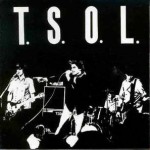
JG: Right, the first T.S.O.L. record came out in April of 1981. So, yeah, it’s recently just been 35 years.
JM: What are your reflections on those early recordings?
JG: Well, that was what we tried to do on this new record. One thing about the early records that was so cool is they were just pure. At the time, nobody gave a shit about punk rock. Nobody cared. It wasn’t like, “Radio is gonna play this.” It wasn’t like we were worried about radio, or selling records. No one gave a shit, because nobody cared about the music. Nobody liked it, other than the kids that were playing it. So all those records were still pure. There wasn’t a lot of thought put into them, like, “Hey, this has to be longer. You’ve gotta watch the language.” All the bullshit that later on even punk rock music started adapting. Back then, no one cared. I sing flat or sharp, and the drums aren’t always in time. We didn’t care. And it came out really kind of cool like that. Some of it, for me, is hard to listen to. I go, “Oh my God, why did they let me sing like that?”
But on this new record, we did the same thing. Like, we didn’t use click tracks. We just said, “Let’s just play and record it. What does it matter anyway? What do we care? Let’s just go do whatever we want to do and not worry about it.” And I think that’s the attitude that I remembered most, and that’s the attitude we tried to bring into this new record. The cool thing is, because we did that, the new record really breathes. It’s really kind of cool. It slows down and speeds up. It’s, like, human.
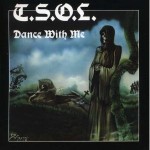
JM: Some of those early recordings were produced by Thom Wilson, who passed away last year.
JG: I loved Thom.
JM: How did he help to shape those recordings?
JG: The best thing about Thom – and to some people this is a complaint – is that Thom was like a photographer. So when we came in, he wanted to just shoot us, he wanted to capture us. He didn’t want to take our sound and change it, or do anything, or add to it. He just wanted to get the best representation of us possible. If we were a little bit out of tune [laughs], Thom didn’t tell us to tune. It’s like he didn’t say, “Hey, tune!”
Have you ever watched those Wild Kingdom animal shows on TV, where they hide the camera? That was almost Thom’s take on things. He would basically hide the camera, and then film us in our natural habitat. That’s how he worked as an engineer, at least with us. Like I said, some people might complain, but then when you look back, Thom took a real purist view of what was happening. He didn’t want to change it or fuck with it, he just wanted to catch what it was, when it was. And it was bitchin’! I loved working with him.
Thom told me a bunch of shit that kind of shaped me. One of them I always remembered – when you finish a record, then you’ve got to give the record to a record company. So you put your heart and your soul, everything you have you put into making this record. And then you give it to somebody that doesn’t really give a shit about it [laughs]. Or they’re making four dollars an hour, so why do they give a fuck about your life. I remember Thom, every time we would finish a record, Thom would look at me and say, “And now, we give it to the hands of the lame” [laughs]. I fucking love that.
JM: What, to you, was the good, the bad, and the ugly about the punk rock music scene in the late 70’s and early 80’s?
JG: The good was that for the most part there was no rock star attitude. When I first got into it, there wasn’t a lot of, “You don’t sound like us.” It was way more wide open than it is now. It was way more free and wide open because there weren’t that many people involved in it. It was more like family, and wide open. Like, you could come and play the accordion and we would say, “That’s great.” So I really liked what was happening. That was my favorite.
Later on, people came in and they said, “Oh, this is hardcore. This is punk. This is speedcore. This is death rock.” They started classifying it, and I hated that. I hated that. I liked the part where we were free and it was fun, and there weren’t a lot of people trying to be a rock star. They just wanted to play music.
Like there’s kids now who start bands, and their goal is to be big [laughs]. That’s not my goal. That’s never been my goal. My goal has always been that I just want to play and create. I don’t give a fuck about anything else. I just want to keep doing it.
JM: You went by a bunch of different names back then. What’s the story behind that?
JG: I was just fucking around. In a way I wish I didn’t do that, because it caused me a problem later on [laughs]. I was just screwing off. I didn’t care. You know, it’s like I wasn’t trying to be a rock star. “Hey, this record I’m Alex.” “This record I’m Jack DeLauge.” “Now I’m Jack Ladoga.” I don’t care. That’s really what it was. I just didn’t give a shit. It didn’t matter to me.
Like, after I quite T.S.O.L. and they turned into a metal kind of band, they asked me, “Hey, can we use the name?” And I said, “Yeah, I don’t give a fuck.” I didn’t even care. You know, I mean later on looking back there’s stuff I wish I wouldn’t have done, but at the time that was the attitude. I didn’t give a shit.
JM: Why did you leave T.S.O.L. back in 1983?
JG: It was a hassle. The police were after us all the time, we were blacklisted from clubs. I told the guys, I said, “Look, why don’t we just change our name? Why don’t we keep playing and let’s change our name?” A couple of the guys looked at me and said, “You’re crazy. Why would we change our name when we’ve built this up?” And I said, “Because what does it matter? We’re just playing. Let’s change the name.” Two of the guys didn’t want to do that, and three of us left. The drummer Todd, myself, and the keyboard player – the three of us quit. And then the other two guys kept the name, basically to make money from the name. Which, whatever… Which went against everything we believed in the first fucking place. Or supposedly believed in.
JM: Fastforwarding a bit, you ran for Governor of California. What was that experience like?
JG: Well, I just did it to bitch about healthcare. And back at the time there weren’t a lot of people talking about healthcare in California. Now it’s a huge issue. But back then, I just did it to bitch about healthcare. It was a chance to talk about the healthcare situation in California. That’s what I did. And the homeless situation. So that’s what I used it for.
Now, did I think in my mind that I was going to win? No, c’mon man. We spent like 500 dollars on our campaign, you know what I mean? Not that it was a joke, because I wanted to bitch about healthcare, but that’s really all it was about.
It was funny because back then I was running as a Social Democrat, which is what Bernie Sanders is [laughs]. I mean, that’s what I was doing back then. They got me listed as a Social Democrat. I remember guys getting mad at me, calling me a socialist. Like, Hey, socialist to me isn’t a dirty word. You just don’t understand it.”
JM: You were a little ahead of your time, I think.
JG: Yeah, just a little bit.
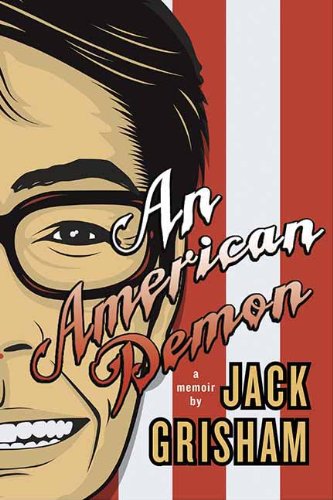
JM: Your memoirs An American Demon are pretty crazy. What did you learn about yourself from writing that book?
JG: That I don’t know how to write [laughs]. I was learning as it was going on. Because I’d never written anything longer than a song with 50 words. You know, and now I’m sitting there looking at 160,000 words, 200,000 words [laughs]. Shit! How do you put a thought together?
They’ve been trying to make a movie out of that since the book came out. But I’m not really happy with anything that’s happened yet.
JM: If you could choose the actor to play you in the movie, who would you want?
JG: Ah, I don’t know. There’s been… I don’t know. I don’t care. It would be good if they got all unknown people. I think that would be good.
The trouble is, the character in that book, it’s hard to find that mix between somebody that looks… Because at the time, I looked like a sweet, good little boy. If you look at the early T.S.O.L. stuff, I’ve got a real baby face. There was a real Ted Bundy thing going on then, because I looked so innocent. I used to tell people all the time that I could be standing in front of a burning building with a can of gas in my hand and a lighter, and the police would go up and say, “What’s going on here?” And I’d look at them with a little boy grin and say, “I just found these things, officer.” And they’d say, “Thanks, son.”
That happened all the time. Like my friends were always like, “How are they letting you go? It’s so crazy.” I talk about it at the start of An American Demon. It says, “To be a great demon you’ve got to be attractive.” And you see these guys that just because of the way they look or whatever, if they look like a criminal then they get immediately picked as a criminal. They get treated as such. And then you get these guys, the Ted Bundy types, that are just monsters, but they look like this innocent boy next door, and no one thinks they’re guilty.
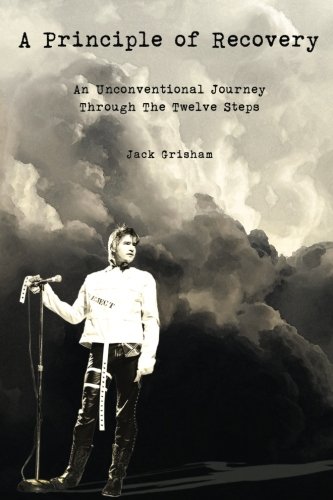
JM: You also wrote a book on recovery that came out recently. How would you summarize the main message of that book?
JG: I’ve been in recovery for over 27 years. I don’t even know what the main message is. Are you familiar with recovery at all?
JM: Not personally.
JG: The issue is, you get these people that can’t deal with reality. Like, reality blows to a lot of people. There’s a line in this new T.S.O.L. record, and it said, “It’s a hard world, but only if you’re a dreamer”. To a lot of people, the world is not hard. It’s difficult, but it’s not hard. But to some people, they’re constantly in fear and anxiety or whatever, that kind of thing. These people, they start drinking and they start doing drugs. They become addicts, they become alcoholics, whatever it is.
They go to treatment, and get cleaned up. But then the problem is that, yeah, they’re off the drugs and the alcohol, but then they’re thrown back into this world, and they’re dreamers, and they’re full of anxiety and they’re scared, and there’s all this fear, and they don’t know how to handle society. So they end up going back and get loaded again, because that’s all they know. And then it starts this cycle again, over and over and over again. So they try to be clean, but the pain of being clean is greater than the pain of getting loaded again. And then it comes that the pain of getting loaded is greater than the pain of being clean, so it’s this crazy cycle.
So, basically, that book is really about a philosophy to live clean, where the fear is less, and the anxiety is less, and all that. The bottom line, what really makes these people alcoholics or addicts is that it’s a substance that’s hurting them, and they’re going to do it again and they can’t stop it. That book’s being used in a lot of treatment centers now, which is good. That’s nice.
JM: If you could go back and give your younger self some advice, what would it be?
JG: Nothing [laughs]. I wouldn’t change a thing. I was telling my wife that before. Like, I’m really happy with where I am now. I’m really happy and I really love my wife and the kids, and I enjoy where I am. So the way I look at it is I’ve never ever made a mistake, because what I am now, how can I say I made a mistake because anything I did got me to this point. So I wouldn’t give any advice, other than maybe saying, “Get ready” [laughs].
My buddy – he died of a drug overdose – when we were getting ready to go on some crazy adventure with somebody, he’d call it “a thriller”. “Get ready, man, we’re going on a thriller.” He’d be with me, and he’d be on the phone with somebody, and he’d say, “I’m on a thriller with Jack,” meaning who knows where we’re going to end up or what’s going to happen.
JM: You mentioned Todd Barnes, who passed away a while back. What was he like?
JG: He was great. He was really fun. But he was really warped, also. He had a great heart, but he also caused a lot of trouble and he was really warped. Like, he threw my dog into the swimming pool at my parent’s house, so I kicked him in the ass really hard [laughs]. So he’s mean to the dog, and then I kick him in the ass really hard and he starts crying, and he says, “You could stab my grandmother and I would never hurt you.” [laughs] It’s crazy! Hurting the dog, but he’s crying because I kicked him, and he’s telling me that I could kill his grandmother and he wouldn’t raise a hand to me. It’s like, that basically sums up Todd right there.
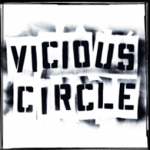
JM: He was in T.S.O.L., but he was also in Vicious Circle before that.
JG: He was the drummer for VC.
JM: What happened to the other guys from that band?
JG: Mike Terrell – “Laddy”, the bass player – he’s in Oceanside somewhere. And then Steve Houston, the guitar player, he came from a family of privilege. So he basically lives off his dad still. He’s just wandering around, looking kind of homeless, all over the place. So he gets a monthly check. He’s like a trust fund guy.
JM: Have you ever considered getting back together to do a reunion of Vicious Circle?
JG: No, the last time I talked to Steve I said I would beat his ass [laughs]. So that’s not going to happen. And Todd’s dead, so there’s really no way to do any of that.
JM: What are your plans, musical or otherwise? Obviously the new album is coming out, but do you have any books in the works?
JG: Yeah, I’m getting ready to write another book. I’ve always got something going on. I’ve been actually working on a couple books, and I’ve decided that I’m going to do one book – it’s like four novellas put together. Four different stories in one book. I’ve been working on those stories. So that’s the next thing.
But right now, it’s just like, hey, let’s just get this record done. That’s my only thought. I’m like a broken record. Get the record done. Somebody called today and they said, “What about this tour?” And I said, “I don’t care, I’m not going to talk to you. Let’s get the record done.” “What about the show?” “I don’t care, let’s get the record done.” So the key thing is, get the record done. And hopefully it’s going to be done today.
JM: I hope so!
JG: I do, too, so then I can stop saying, “Let’s get the record done”, and I can move on to something else.

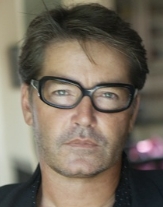
Discussion
No comments for “Interview: Jack Grisham”